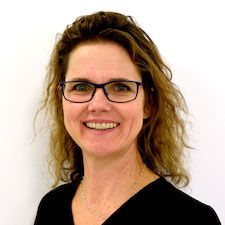Article
High Burden of Ulcerative Colitis Disease in Australia
Author(s):
Both patients and physicians request more time for routine ulcerative colitis appointments.
Susan J. Connor, PhD

While the majority of patients are satisfied with ulcerative colitis (UC) treatments, the overall disease burden remains high in Australia.
A team, led by Susan J. Connor, PhD, Department of Gastroenterology, Liverpool Hospital, South Western Sydney Clinical School, University of New South Wales, Ingham Institute of Applied Medical Research, evaluated the impact , perceptions of burden, and management approaches of ulcerative colitis using data from both patients and physicians in Australia.
“Patient–physician communication is a vital element in the care of patients with UC, where the construction of collaborative relationships is a key part of achieving optimal disease management,” the authors wrote. “Arming patients with an adequate knowledge of UC enables them to confront both their disease and the possibilities of self-management.”
The disease burden of ulcerative colitis can surpass the clinical symptoms alone and there is a need for a better understanding in how the disease can impact the patient lives.
The Survey
A total of 215 patients with ulcerative colitis and 90 physicians in Australia answered the Global Ulcerative Colitis Narrative Survey, conducted by The Harris Poll between August 2017 and February 2018.
The survey, which was conducted in Australia, Canada, Finland, France, Germany, Italy, Japan, Spain, the UK, and the US, explored several aspects of living with ulcerative colitis, including day-to-day disease impact, disease management, goal setting, and communication.
The participants answered questions on disease characteristics, impact on life, communication with physicians, and patient knowledge of ulcerative colitis.
Eligible physicians were gastroenterologists seeing at least 10 patients with ulcerative colitis per month, at least 10% of which are patients currently taking a biologic.
Disease Burden
Of the 215 patients, 84% had moderate to severe ulcerative colitis. The diagnostic delay on average was 1.9 years and 48% of patients had waited at least a year for diagnosis.
In addition, 65% of patients considered themselves to be in remission and 97% reported a flare in the previous year.
Treatment
A high rate of patients (92%) were satisfied with their ulcerative colitis medication. If their treatment made them feel “good enough,” 75% of respondents would not consider an alternative.
The majority of patients (90%) were satisfied with communication with their physician, but only 48% felt comfortable raising emotional concerns.
One request from both patients and physicians is more time during routine appointments. Patients also had gaps in their ulcerative colitis knowledge, which physicians mostly recognized.
“The Australian survey results highlighted the diagnostic delay and burden of UC patients' experience, gaps in patients' knowledge of UC, and challenges in patient–physician communication,” the authors wrote. “Compared with the overall Global UC Narrative Survey, patients in Australia reported a high burden of disease.”
Australia has 1 of the highest incidence rates of ulcerative colitis in the world with some estimates of a crude incidence rate of 7.5 per 100,000 individuals in 2010-2011.
The study, “Ulcerative Colitis Narrative findings: Australian survey data comparing patient and physician disease management views,” was published online in the Journal of Gastroenterology and Hepatology.




